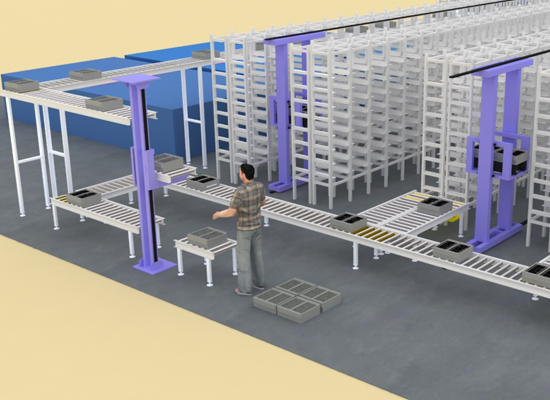
The difference between smart warehousing and smart warehousing
Technology implementation, application focus, and value
The main difference between smart warehousing and smart warehousing is their technical implementation, application focus, and value.
Technical realization dimension: intelligent warehousing mainly relies on RFID, sensors, automation equipment and other technical means
to realize the real-time monitoring and management of items in the warehouse, which greatly improves the degree of automation of warehousing.
Smart warehousing pays more attention to data analysis and intelligent decision-making, and realizes intelligent optimization and prediction of the
warehousing process through artificial intelligence and big data technology.

Application focus: Intelligent warehousing pays more attention to automation and mechanization technology, and realizes efficient operation through
the intelligence of equipment and systems; Smart warehousing focuses more on the intelligent application of data and improves the management level
through information technology.
Value: The real-time monitoring of intelligent warehousing can help enterprises reduce labor and management costs, and improve the efficiency of
warehousing operations, but it is weak in the use of data. Smart warehousing, on the other hand, pays more attention to the in-depth analysis and
utilization of data to provide more forward-looking decision-making support for enterprises, but requires higher investment in equipment and
technology implementation.
To sum up, smart warehousing is more suitable for those enterprises that need to improve operational efficiency and reduce human intervention, while
smart warehousing is more suitable for those enterprises that need to optimize warehouse management through data analysis and intelligent decision-making.
 86-25-5279 6106
86-25-5279 6106
 Contact
Contact




 Download
Download